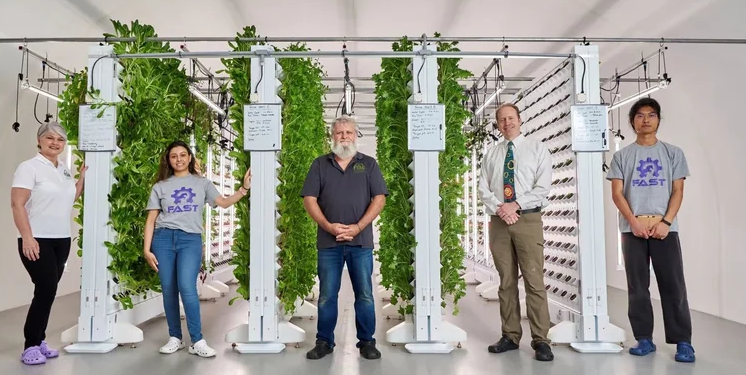Vertical farming: ensuring year-round crop production regardless of weather conditions
Traditionally, farming has always been dependent on weather conditions, and farmers often said that they “eat by the grace of heaven.” However, the development of vertical farming represents a revolutionary solution to this age-old problem. By moving away from dependence on sunlight and soil, vertical farming uses urban space to grow crops, directly reducing transportation costs and carbon emissions.
Vertical farming concept
Vertical farming typically involves growing crops in layers stacked in buildings, shipping containers or other enclosed spaces. This method combines artificial lighting, automated irrigation and fertilization systems, and fully automated monitoring systems.
Benefits include more efficient use of resources and reduced risk of crop failure due to climate change. However, disadvantages include higher maintenance costs and limited crop variety, with the current focus on leafy greens, basil, blueberries, figs and raspberries.
Latest Advances in Vertical Farming
A recent study by Canadian researchers highlights significant advances in vertical farming aimed at year-round berry production. In their Agrotunnel vertical farm experiment, they used AI monitoring to create an optimal growing environment. Agrotunnel Farm brings the growing process indoors using vertical aeroponics and hydroponics to ensure continuous harvesting throughout the year.
This farm operates using electricity generated by translucent photovoltaic panels developed by the WIRED (Western Innovation in Renewable Energy) project, which powers LED grow lights, water pumps, heat pumps and artificial intelligence monitoring equipment. Crops grown include strawberries, blueberries, honeyberries, gooseberries and boysenberries. The agricultural tunnel, an enclosed growing space, provides energy efficiency, climate control and protection from adverse weather conditions, ensuring safe and consistent crop growth.
Future consequences and expert opinions
Kim Parker, CEO of the Canadian Food Security Framework, believes that as technology advances, vertical farming has the potential to provide self-sufficient food production for everyone, no matter their location. This innovation could solve food shortages caused by climate change. Parker plans to build agricultural tunnels across Canada to mitigate the effects of the climate-related food crisis.
Vertical farming represents a revolutionary shift in agriculture, promising stable, year-round crop production independent of weather conditions. By integrating advanced technologies and making efficient use of urban spaces, vertical farming not only improves productivity but also solves environmental and logistical problems. As this technology develops, it has the potential to transform global food security and sustainability.












